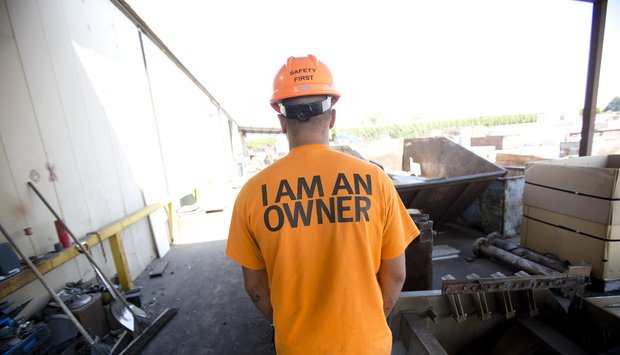Handing your employees fully vested shares of company stock is certainly one way to inspire performance, but it can get expensive. It is tough to dispute, however, that owners care more and deliver more value to the bottom line than a run-of-the-mill clock-punching employee.
The key then is to inspire ownership behaviors. For that you need three things: effective training, attitude, and management support.
Effective Training
Training is a key issue for retailers, restaurateurs, truly any small business with customer interaction. Many operate in industries that rely heavily on front line staff to deliver an engaging and positive customer experience – something that directly impacts on customer loyalty and sales performance.
Are your employees receiving effective training? Probably not. The percentage of small business employees that receive training at all is remarkably low. For example, a survey by Qumu of retail employees in the US and UK, reported that just over 35% received no training at all. Not just ineffective training, but no training!
What does effective training look like anyway? The goal is to not only build basic skills, but to cultivate and inspire ownership behaviors:
- Inspire empathy with the business
An apathy killer. People will fight for something they care about. What’s this business’ back story?
- Connect that employee’s behaviors to their personal success
Be obvious. Make sure to connect the dots between behaviors, sales, and money in pocket. And no, this is not just for staff on commission.
- Build basic technical skills (the job itself)
Even experienced new hires can bring bad habits; train on how *your* business does it. Plus skill mastery leads to confidence.
- Build customer interaction skills / sales skills
Everyone should be taught basic customer skills. Every customer facing employee should also be taught consultative selling: up- and cross-selling, closing.
How those goals are addressed within a specific training program depends on the business, industry, role, etc. The most effective employers start with core minimum skills to get employees functional quickly, then build over time with a combination of experience, regular coaching, and additional training.
Attitude
Call it what you will: attitude, temperament, charm, personality, work ethic, EQ. They are all imperfect descriptors for that quality which enables your employees to engage positively with your customers and co-workers — even when they’re having a rough day or are tired or are dealing with difficult customers.
(As an aside, in grooming your future leaders – and you should be doing that continuously right? – there is evidence that Emotional Intelligence (EQ/EI) is a positive marker for successful leadership.)
The management maxim “You either hire hard, or you manage hard” definitely applies here. Make your life easier by looking for and hiring candidates that exhibit the attitude that will benefit your business. It’s easier to train skills than attitude.
That said, training and coaching can help build positive attitude. An employee who is confident in their skill and feels empowered can more easily focus on the customer and less on the mechanics of their job. That won’t mean a damn thing when you ask them to take out the trash — but then again “hire hard or manage hard”.
Management Support
Lastly, a well-trained employee with top-shelf EQ/EI still needs one critical component to truly feel like an owner. Management support, sometimes called empowerment or even Principle Based Decision Making, is the final powerful enabler.
Let’s say a situation arises which is not directly and completely addressed with the standard procedures. Maybe a customer return that doesn’t quite meet eligibility. What should an employee do?
What would an owner do? Most likely the owner would apply listening skills, assess the severity of the situation, the value of the customer, mix in some intimate knowledge of the business (culture, finances, etc.), and take the appropriate action. Why not empower your employees to do the same?
Look, you’re probably not going to empower a stock clerk to hand out complimentary shoes to customers if they complain. But why not invite a stock clerk to provide input to the stock room safety procedures? Or maybe share a better way to organize the inventory on the shelves?
There are great resources out there to help any business start on the path of empowerment. Find one that makes sense for your business and your culture, and get going.
Can you picture your business if every single employee behaved like an owner? How much happier would your customers be? How much happier would your bottom line be? How much happier would your employees be?

